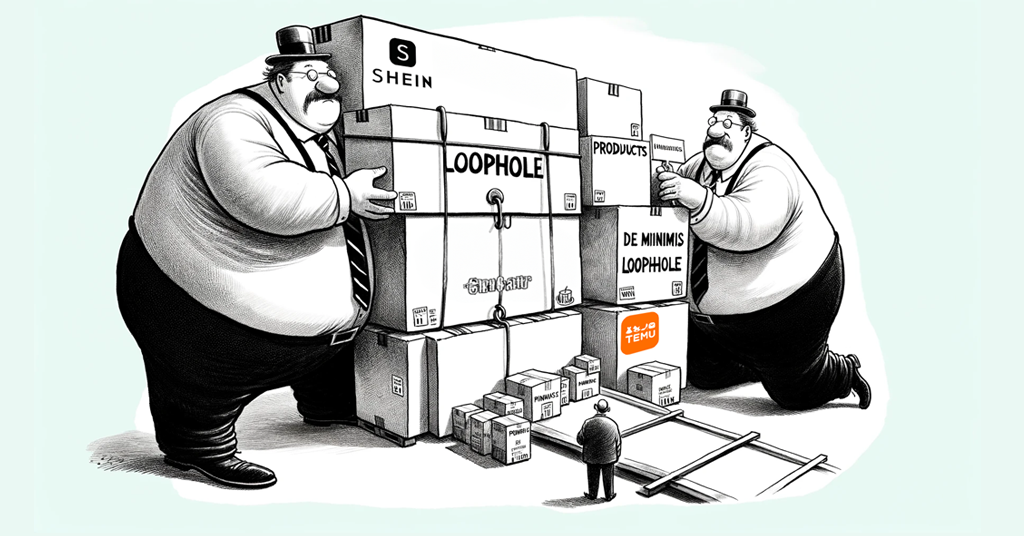Did you know the ‘de minimis loophole’ is an almost 100-year-old rule initially meant for travelers bringing home small souvenirs? While it’s a global rule, it has notably boosted Chinese e-commerce, allowing a flood of inexpensive products to enter the U.S. with minimal customs scrutiny.

The term “de minimis” is Latin for “about minimal things,” referring to something that’s too trivial or minor to consider. In legal and financial contexts, “de minimis” describes amounts or details that are too small to be legally significant.
The “de minimis loophole” refers to a rule that lets goods valued under $800 be shipped into the U.S. without paying taxes or undergoing much inspection. This rule was made long ago to simplify things for small, personal shipments. However, companies like Temu have used this loophole to send lots of products into the U.S. without taxes or strict checks, allowing them to sell goods very cheaply.
This loophole’s history goes back to the 1930s, initially meant for travelers bringing home small souvenirs. Over time, as items became pricier, the U.S. raised the value limit for these tax-exempt items, reaching $800 in 2015. With the boom of online shopping, companies began sending massive numbers of packages under this value, bypassing U.S. taxes and regulations.
Now, this has become a big issue because it’s hard for U.S. authorities to monitor and inspect the flood of packages, leading to concerns about safety, counterfeit goods, and unethical labor practices. Some U.S. lawmakers are working to close or change this loophole to ensure fair competition and better regulation of imported goods.
This concept was nicely covered in the podcast episode by NPR.









